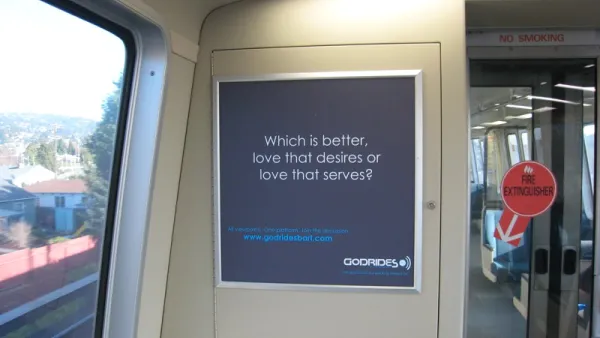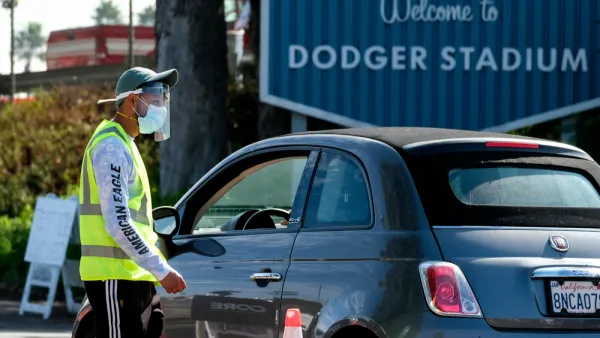The greater Bay Area is enjoying a substantial increase in road maintenance funding from local measures, like bonds, city and county sales taxes, and development fees, part of a growing trend in compensating for a shortage of state gas tax funds.
In the absence of a state gasoline excise tax that has not effectively been raised since 1994 (notwithstanding a complex 2010 gas tax swap), many California cities and counties have had to rely on self-generated revenues, though none come from driver user fees. The trend is particularly prevalent in affluent Bay Area cities and counties.
"From the East Bay to Silicon Valley to San Francisco, local agencies will be spending up to four to five times more for road maintenance in the coming years than they were just a couple of years ago," writes Gary Richards, a.k.a. Mr. Roadshow of the San Jose Mercury News. "(I)t's a reversal of the trend over the past two decades, when the mantra was 'we have no money' to fix roads.
San Francisco was among the first to go to voters for new funding for roadwork, passing a $248 million bond measure four years ago. But few cities are spending as much as San Jose will this year, where the usual $20 million will jump to $55 million thanks to a grant and [$24 million in one-time] development fees.
A sizable chunk will come annually for decades through county sales tax measures that stretch for 30 or more years in Alameda and Contra Costa counties. [See "The Biggest Transportation Winner on the Nov. 4 Ballot]. And a number of cities, such as Santa Cruz, Orinda, Moraga and El Cerrito, have passed tax measures to fix their roads.
Richards goes on to mention which Bay Area cities will increase road funding, by how much, and from what sources. The trend will continue as "Santa Clara County is expected to put a sales tax measure on the ballot next year, and pothole repairs will likely be high on the list of work," he notes.
Hat tip to MTC-ABAG Library
FULL STORY: Bay Area cities will see millions of dollars more for pothole repairs

Analysis: Cybertruck Fatality Rate Far Exceeds That of Ford Pinto
The Tesla Cybertruck was recalled seven times last year.

National Parks Layoffs Will Cause Communities to Lose Billions
Thousands of essential park workers were laid off this week, just before the busy spring break season.

Retro-silient?: America’s First “Eco-burb,” The Woodlands Turns 50
A master-planned community north of Houston offers lessons on green infrastructure and resilient design, but falls short of its founder’s lofty affordability and walkability goals.

Test News Post 1
This is a summary

Analysis: Cybertruck Fatality Rate Far Exceeds That of Ford Pinto
The Tesla Cybertruck was recalled seven times last year.

Test News Headline 46
Test for the image on the front page.
Urban Design for Planners 1: Software Tools
This six-course series explores essential urban design concepts using open source software and equips planners with the tools they need to participate fully in the urban design process.
Planning for Universal Design
Learn the tools for implementing Universal Design in planning regulations.
EMC Planning Group, Inc.
Planetizen
Planetizen
Mpact (formerly Rail~Volution)
Great Falls Development Authority, Inc.
HUDs Office of Policy Development and Research
NYU Wagner Graduate School of Public Service




























